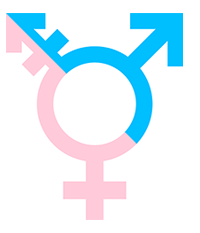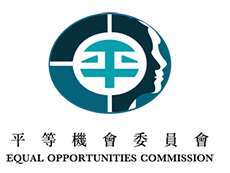


Diversity・Equality・Inclusion

Legal Gender Recognition
The so-called ”de jure gender recognition" generally means that a person's gender identity (perceived as male or female) is officially recognized in law and is reflected in the public register and in the person's primary identification document. This means that the person's sex is legally considered acquired sex, not its native sex. If the acquired gender is legally recognized, it will usually have a significant legal impact on the person. For example, the UK Gender Recognition Act 2004 provides that once an applicant has been issued a formal Gender Recognition Certificate, the person's sex is acquired for all purposes.
At present, there is no legislation in Hong Kong to recognize a person's changed, acquired or intended gender for all legal purposes. In some cases, gender changes can be recognized within the scope of identity, but not at the level of legal status. The current system is that a post-operative transgender person can apply to change the gender mark on his/her Hong Kong identity card, and he/she needs to provide medical evidence to prove that his/her gender has changed after a series of treatments.
In general, a person may, by virtue of a medical certificate, apply under Sections 14 and 18 of the registration of persons regulation (cap. 177A of the laws of Hong Kong) to change the gender mark on the Hong Kong identity card to reflect his or her reset gender. If sex reassignment surgery is performed outside Hong Kong, the medical certificate should state the medical qualifications of the doctor performing the surgery, the place of qualification and other contact information. If it is difficult to obtain the relevant certificate from a doctor who performed the replacement surgery outside Hong Kong, the applicant may request a registered doctor in Hong Kong to make an assessment of the replacement surgery performed.

The EOC expressed support for the Gender Recognition law legislation, arguing that the legislation should not provide for transgender people to complete sex reassignment surgery, and that the self-declaration approach is the best model for legislation. The intention is to respect the rights of transgender persons and to guarantee their rights to dignity, physical integrity and autonomy, consistent with international human rights standards. Amnesty International also supports a fast, transparent and accessible application process for those in need and a careful assessment when referring to foreign examples to prevent the introduction of regulations that have the opportunity to violate human rights.
The EOC submission stated that the Gender Recognition Act should not require transgender persons to receive a medical diagnosis, but should have the right to change their gender in order to respect their human rights. The council suggested that the authorities could consider requiring a transgender person's doctor or psychiatrist to make a statement that the person was receiving appropriate clinical treatment, which could be psychological counselling, but not hormonal or surgical treatment. The EOC did not agree with the British model, arguing that the British requirement for medical diagnosis, etc., is not suitable for Hong Kong. "The best model for gender identity legislation is one that allows self-declaration with no or only minimal medical requirements," the council said.
